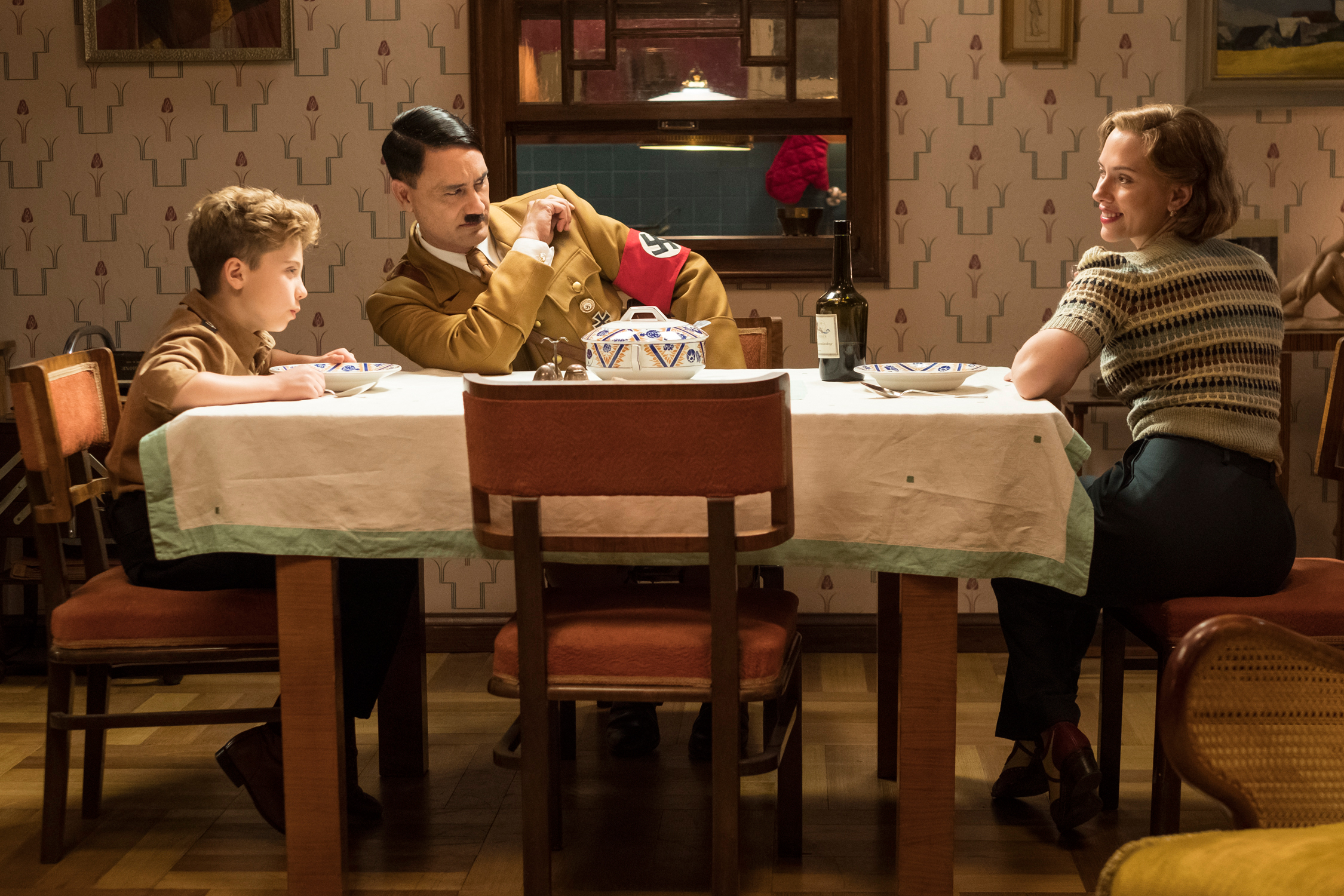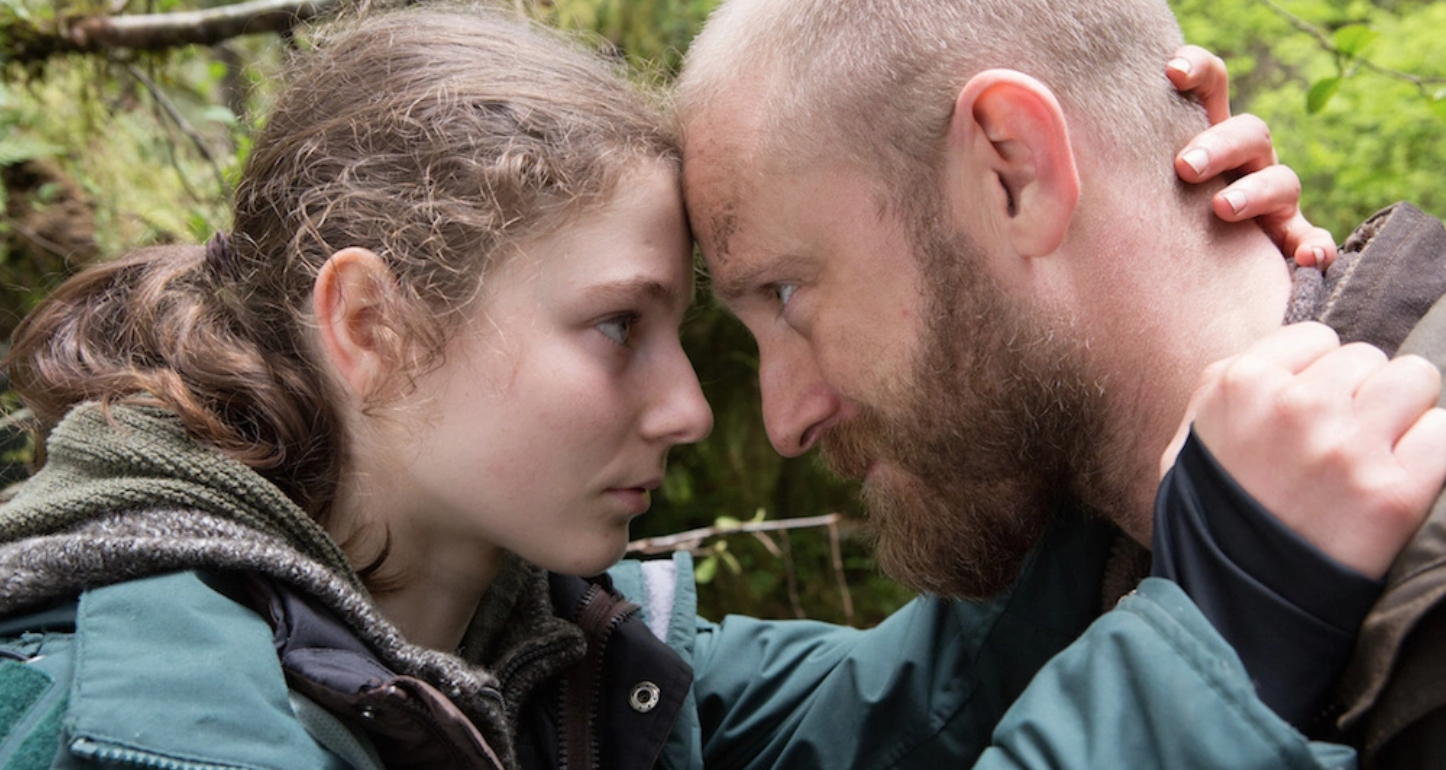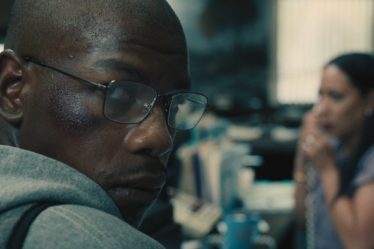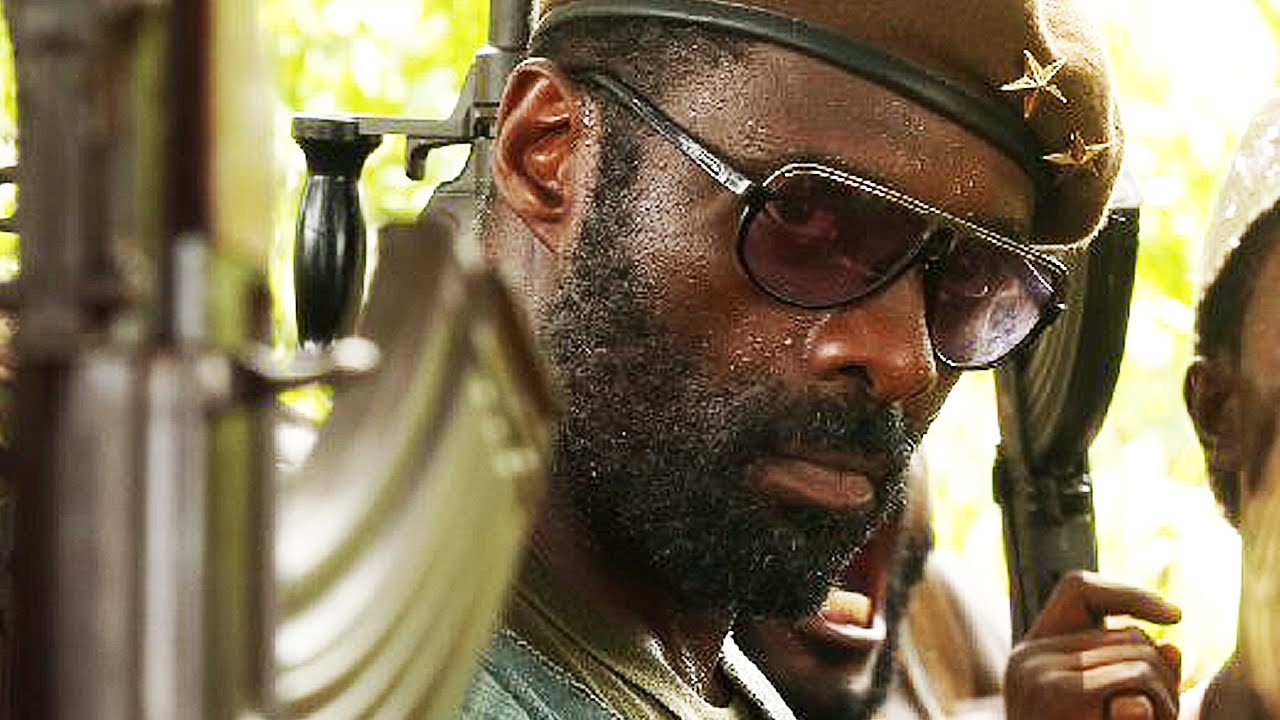
Have you heard about Thor: Ragnarok and What We Do in the Shadows director Taika Waititi’s latest film? Maybe you’ve seen a trailer for a film that takes place in WW2, featuring a boy in a Nazi Youth uniform getting advice from an absurd-looking Hitler and thought, “Hell, no. That’s inappropriate!” If I told you that the writer/director of Jojo Rabbit, who adapted his film from Christine Leunen’s book ‘Caging Skies’, is half Māori, half Jewish, and grew up experiencing prejudice from both sides, would that matter? It should! At this moment in history, and perhaps in every moment in history, people of passion and compassion should seek out art spoken from the perspective of those at-risk, those who can see the dangers of bigotry and hate because they’ve felt it first-hand. For that reason, and because Jojo Rabbit is an inventive, heartfelt, heartbreaking, very funny film, you should say, “Hell, yes!”
In the latter part of the second world war, 10-year-old Jojo (newcomer Roman Griffin Davis) is enamored with the Nazi Party. Though it concerns his impossibly fashionable mother Rosie (Scarlett Johansson), he joins the Jungvolk (aka Hitler Youth) and goes to training camp with his excited, equally, understandably gullible friend Yorki (Archie Yates). It’s a sort of “outward-bound-to-war-because-it’s-fun” camp, run by the war-weary Captain Klenzendorf (Sam Rockwell) and aided by Fraulein Rahm (Rebel Wilson). In tow with Jojo is his ever-present imaginary friend Hitler (Waititi). When some of imaginary Hitler’s terrible advice leads to a bad injury, Jojo convalesces at home, where he discovers his mother is hiding Jewish teen Elsa (Thomasin McKenzie) behind the wall of his dead sister’s bedroom. First he freaks out, considering his options with imaginary Hitler, but realizing giving Elsa up would mean potentially losing his mother, he slowly gets to know her, and his entire worldview changes.
Jojo Rabbit stands on the shoulders of other satires in film history like 1940’s The Great Dictator by Charlie Chaplin, and 1942’s To Be or Not to Be by Ernst Lubitsch, but there are ways in which the film approaches the subject of the holocaust and antisemitism in novel ways, not least in how it parallels the blind acceptance of bigoted, toxic ideas happening today. The film is entirely seen from the point of view of a 10 year old boy, and when he awakens to the fact that Hitler and his beliefs are not only wrong, but potentially devastating to those he loves, everything around him starts to devolve. Imaginary Hitler starts out youthful, put-together, vigorous, and kind, (like Jojo’s absent father), and as Jojo becomes more open-minded, Hitler slowly becomes unkempt, drab, and vicious. At the same time, his mother Rosie remains colorful, loving, and ever chic. The costuming and production design follow this devolution, starting vivid, and shifting to the neoclassic look of Italian films of the 40s and 50s over the span of the film. There are actually several elements in the costuming, created by Avatar and Thor: Ragnarok designer Mayes Rubeo, that are integral to the storytelling in the film. (You can find my interview with Rubeo on TheCredits.org)
What is most impressive about Jojo Rabbit is how it can maintain a tone that is both funny or absurd, and poignant at the same time. The story, the characters, and the messages aren’t just hitting you over the head, there are layers below the absurdity, as there should be. It does require paying attention beyond the obvious happenings onscreen. It requires consideration.
The film won’t be for everyone, especially those who don’t appreciate the offbeat, eccentric humor for which Waititi is known. However, this film feels like a culmination of all his former work, anchored as it is in emotional truth, and the innocence that only comes from repeatedly choosing kindness and love in the face of darkness. All his films have sadness, but this one cries out for us all to find empathy, and consider our own fears and sadness while standing up for and showing kindness to those being persecuted around us.
It bears mentioning that this critic went into the film with some positive bias. There hasn’t been a film by this writer/director I haven’t loved. Also, my grandmother worked for the French Resistance, and told me stories as a child about the Jewish survivors she had encountered in her experience, so I’ve always been fascinated by stories about rescuers during the war that took a stand at their own risk. In fact, even back then, those stories made me stand up for kids around me being bullied. I knew it wasn’t the same, but I assumed the choices those people made then were meant to filter down to us all in the present. That’s part of what Taika Waititi is saying in Jojo Rabbit, that we are meant to stand up against hate and stand for love. Right now.
Interestingly, the critics I know who found the film offensive are white, non-jews. They can be offended, but don’t let that keep you from this inventive, beautiful film. See it for yourself, at the risk of ugly-crying, like I did, through the closing credits.
5 out of 5 stars



